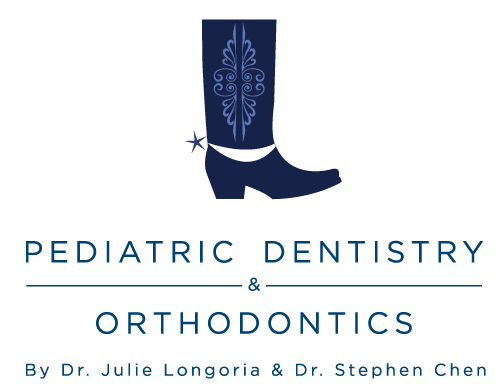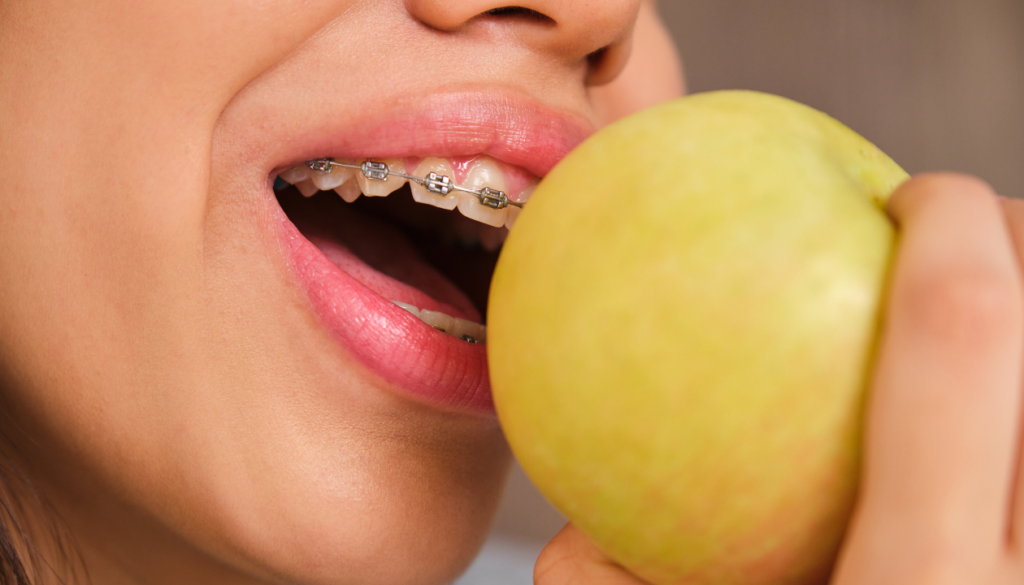Getting braces is an exciting step towards a beautiful smile, but it comes with some important dietary restrictions. You might be surprised to learn that certain foods can damage your braces or hinder your progress.
Knowing what you can’t eat is crucial for ensuring a smooth orthodontic journey.
Foods You Can’t Eat With Braces
Avoiding specific foods is key to maintaining your braces and ensuring effective treatment. Below are categories of foods that can cause issues.
Sticky and Chewy Foods
Sticky and chewy foods pose risks for braces. Avoid candies like caramels, taffy, gummies, and marshmallows, as these can lodge between brackets and wires. These foods complicate cleaning efforts, increasing plaque buildup and cavities.
Gum, except for sugar-free varieties, sticks to braces, potentially causing damage. Snack bars, licorice, and dried fruits can also lead to similar issues due to their sticky textures.
Hard and Crunchy Foods
Hard and crunchy foods can break or bend your braces. Refrain from consuming nuts, popcorn, hard pretzels, potato chips, and corn chips.
Such snacks can cause discomfort by loosening brackets and wires, which may prolong your treatment. Hard candies, including lollipops, candy canes, and Jolly Ranchers, can also loosen braces, making them unsuitable during your orthodontic journey.
Tough Meats
Tough meats require significant chewing and biting, creating pressure on braces. Avoid steak, pork chops, and other similar meats. Their inconsistent textures lead to discomfort and may damage the braces.
Foods That Require Biting Into
Foods that require biting into, such as apples, carrots, and corn on the cob, can also damage your braces. These items place excessive force on brackets and wires, risking breakage.
Opt for softer alternatives, like applesauce or cooked vegetables, to ensure safety.
Tips for Eating with Braces
Eating with braces requires some adjustments to ensure you protect your orthodontic appliances and maintain oral health. Prioritizing specific strategies can help make mealtimes easier and safer.
Preparing Soft Meals
Choose soft meals that require minimal chewing. Select options such as yogurt, mashed potatoes, smoothies, and soft-cooked vegetables. Soft meals reduce the risk of damaging braces and make eating enjoyable.
Consider adding protein sources like eggs or soft fish to your diet for balanced nutrition while accommodating your braces.
Cutting Food into Bite-Sized Pieces
Cut foods like fruits and sandwiches into small, manageable pieces. When you bite into smaller portions, the force exerted on your braces decreases. For items like apples, remove the skin and slice the fruit.
For sandwiches, remove crusts and cut them into individual, bite-sized triangles. This simple adjustment helps prevent damage to your braces and allows for comfortable chewing.
Importance of Dietary Changes with Braces
Dietary changes are crucial for ensuring the effectiveness and longevity of your orthodontic treatment. Adhering to specific food restrictions helps protect your braces, reduce discomfort, and maintain optimal oral hygiene.
Protecting Your Braces
Protecting your braces involves avoiding hard, sticky, and chewy foods. Consuming these foods can damage brackets, wires, and rubber bands.
For example, hard foods like nuts or crunchy snacks can break or bend your braces, while sticky items such as caramels or gummies can lodge between the brackets and wires. By steering clear of these foods, you minimize breakages, reducing the need for frequent repairs that could delay your treatment process.
Preventing Discomfort
Preventing discomfort is essential, especially right after getting braces or following adjustments. During this time, your teeth and gums may feel sore.
Opting for softer foods eases this discomfort and allows your mouth to adjust more easily to the new settings. Examples of soft foods include yogurt, mashed potatoes, and smoothies.
These options provide nutrition while ensuring your mealtime experience remains comfortable.
Maintaining Oral Hygiene
Maintaining oral hygiene is vital, particularly with braces. Certain foods can contribute to plaque buildup and increase the risk of tooth decay, especially around the brackets.
Foods high in sugar, like candies and sodas, can exacerbate this issue. Focus on consuming foods that promote dental health.
Choose options like soft-cooked vegetables, whole grains, and dairy products. Regular brushing and flossing complemented by a well-chosen diet will help keep your braces and teeth in top condition.
Conclusion
Navigating your diet with braces doesn’t have to be overwhelming. By avoiding hard sticky and chewy foods you can protect your braces and ensure a smoother orthodontic journey.
Prioritizing softer meals and making simple adjustments like cutting food into smaller pieces can significantly reduce the risk of damage.
Remember that these dietary changes not only help maintain your braces but also promote your overall dental health. Staying mindful of what you eat will make your experience more comfortable and effective.
Embrace this opportunity to explore new soft food options and enjoy your path to a beautiful smile.
Frequently Asked Questions
What can I eat with braces?
You should focus on soft foods that require minimal chewing, like yogurt, mashed potatoes, smoothies, and soft-cooked vegetables. These options reduce the risk of damaging your braces while still providing essential nutrients.
Can I eat ice cream with braces?
Yes, you can enjoy ice cream with braces! It’s soft and easy to consume. Just be cautious about added toppings like hard nuts or sticky candies that can damage your braces.
How can I prevent food from getting stuck in my braces?
To minimize food getting stuck, cut food into smaller pieces and choose softer options. Regular brushing and flossing are also crucial for maintaining cleanliness around your braces.
Can I eat pizza with braces?
You can eat pizza as long as you avoid hard crusts. Choose softer, thinner crusts and cut your pizza into small, manageable pieces to protect your braces.
What should I do if my braces break?
If your braces break, contact your orthodontist as soon as possible. Avoid eating hard or sticky foods until you can get them fixed to prevent further damage.
How can I manage discomfort after getting braces?
To ease discomfort, stick to soft foods for the first few days. Over-the-counter pain relief medication can also help, but consult your orthodontist for any concerns.
Are there any drinks I should avoid with braces?
Avoid sugary drinks, including soda and juices, as they can lead to plaque buildup around your braces. Water is the best choice for maintaining both hydration and dental health.
Can I eat chocolate with braces?
Yes, you can eat chocolate with braces, but avoid hard or filled chocolates that may be sticky or require excessive chewing. Opt for softer varieties instead.
West U Smiles Orthodontics: Protect Your Smile with Expert Braces Care—Schedule Now!
At West U Smiles Orthodontics, we’re dedicated to helping you achieve and maintain a beautiful smile. Knowing what to avoid with braces is key to a successful treatment.
Schedule your consultation today and let our expert team guide you through the process. Don’t delay—secure your appointment now for a healthier smile tomorrow!


